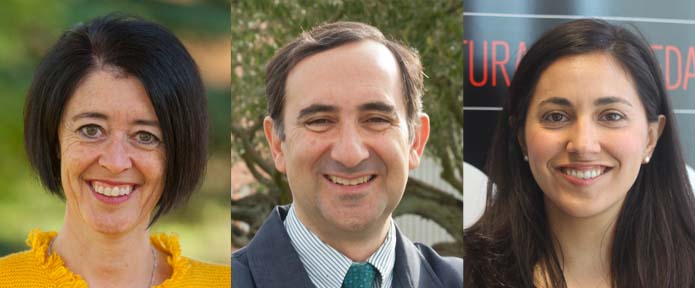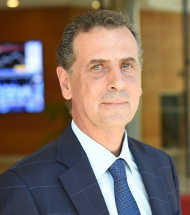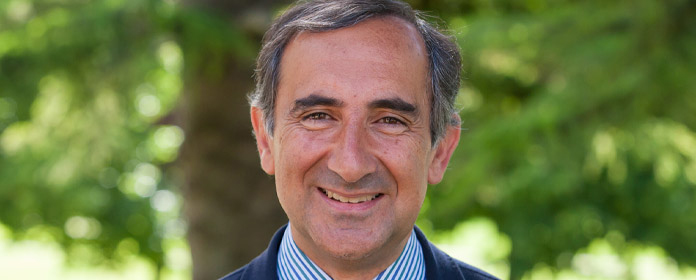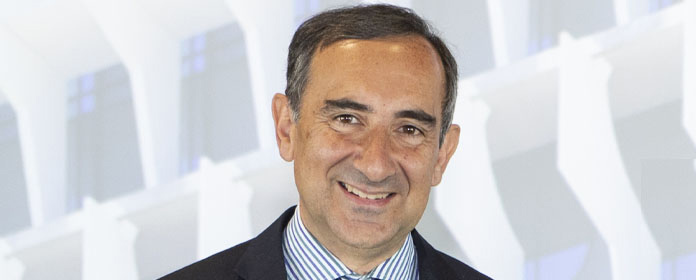A book offers new insights into how theological concepts and religious practices relate to politics, society, and the Economics
Political Theology in Medieval and Early Modern Europe' is edited by Montserrat Herrero, Jaume Aurell and Angela C. Miceli, and is framed in project 'Religion and Civil Society' from the Institute for Culture and Society

A new book from the University of Navarra provides new historical and theoretical perspectives on political theology from an interdisciplinary approach , from political Philosophy and theology to art and history. It is entitled Political Theology in Medieval and Early Modern Europe and is framed within the project 'Religion and Civil Society' of Institute for Culture and Society (ICS).
Political theology studies how theological concepts and religious practices relate to politics, society and Economics. Although the relationship between Christianity and politics has been debated since antiquity, as an academic discipline began in the late twentieth century, mainly by Carl Schmitt.
The book is edited by Montserrat Herrero, professor of Philosophy Politics and principal investigator of 'Religion and Civil Society'; Jaume Aurell, professor of Medieval History and Theory of History, partner of the ICS and director of high school business and Humanism; and Angela Miceli, researcher at project between 2013 and 2016. It is published by Brepols, one of the five most prestigious publishers in the world in the field of History according to Scholarly Publishers Indicators.
The Issue is divided into two parts. The first focuses on the training concept of political theology, especially from authors such as Carl Schmitt, Erns Kantorowicz and Henri de Lubac.
The second part analyzes the development of the term, with its transfers between the temporal and the spiritual, through historical events (such as the crusades, the royal wisdom, the idea of tolerance), discourses, rites and representations throughout the Age average and up to the modern period.
All the works demonstrate the fecundity of the concept in the different areas of the Humanities and social sciences. Thus, its influence is seen in the configuration of traditional monarchies, in the relationship between the mystical body and the body politic, in the social tensions that occur when politics and religion are dysfunctional, as well as in the role of symbols in recreating new concepts, values and practices, both political and religious.
The book shows examples of the application of the concept of political theology to written discourses, ritual ceremonies and visual representations. Based on this evidence, the book suggests changing the thesis of a progressive secularization of the modern world, or at least, it argues that this supposed secularization should not be taken for granted as a linear and progressive process, and that in many occasions it is verified reciprocally.
Authors from five countriesThe book includes interdisciplinary contributions that approach political theology from different specialties: Philosophy, theology, history, law, art history and anthropology.
Colaboran William T. Cavanaugh (Universidad DePaul, EE. UU.), Antonio Bento (Universidad de Southern California, EE. UU.), Manuel Alejandro Rodríguez de la Peña (Universidad San Pablo CEU), Martin Aurell (Universidad de Poitiers, Francia), José María Silva Rosa (Universidad Beira Interior, Portugal), Simon Kow (Universidad King’s College, Reino Unido), Rafael García Pérez (Universidad de Navarra), Juan Pablo Domínguez (Universidad de Navarra), Rita Costa Gomes (Universidad Towson, EE. USA), Vinni Lucherini (University of Naples, Italy), Xavier Barral i Altet (University of Rennes, France), Laurent Hablot (University of Poitiers, France), Marta Serrano-Coll (Rovira y Virgili University) and Elena Kashina (University of York, UK).
The authors use a wide variety of sources, from narrative texts - such as philosophical and theological discourses by John of Paris, Spinoza, Locke, Bayle, Leibniz, Tocqueville, Montesquieu - and rituals (both royal coronation ceremonies and liturgical ceremonies) to visual representations (different types of images such as coats of arms, banquets and scenes of royal coronations) over a period of time spanning from the Age average to the 20th century.




